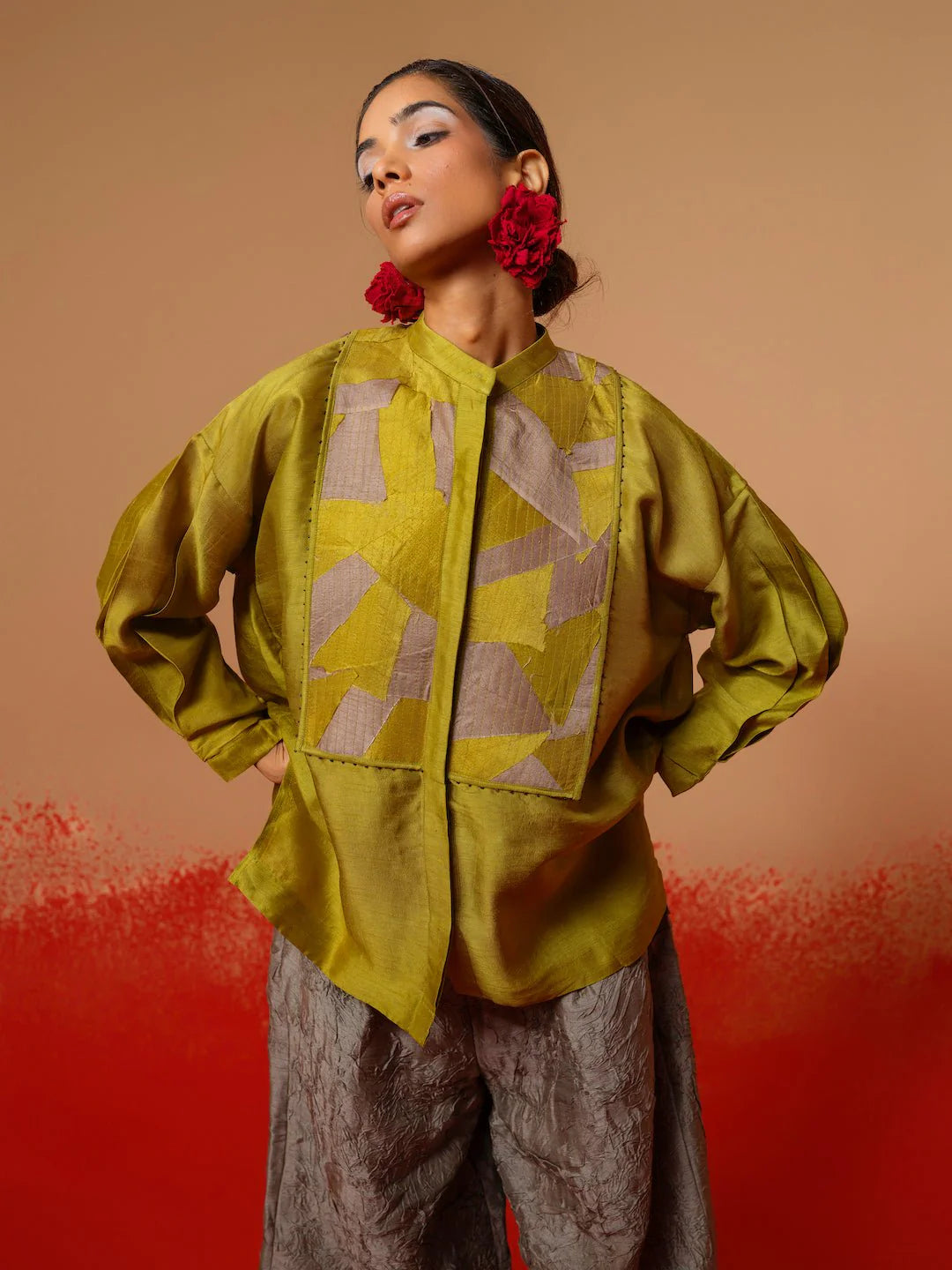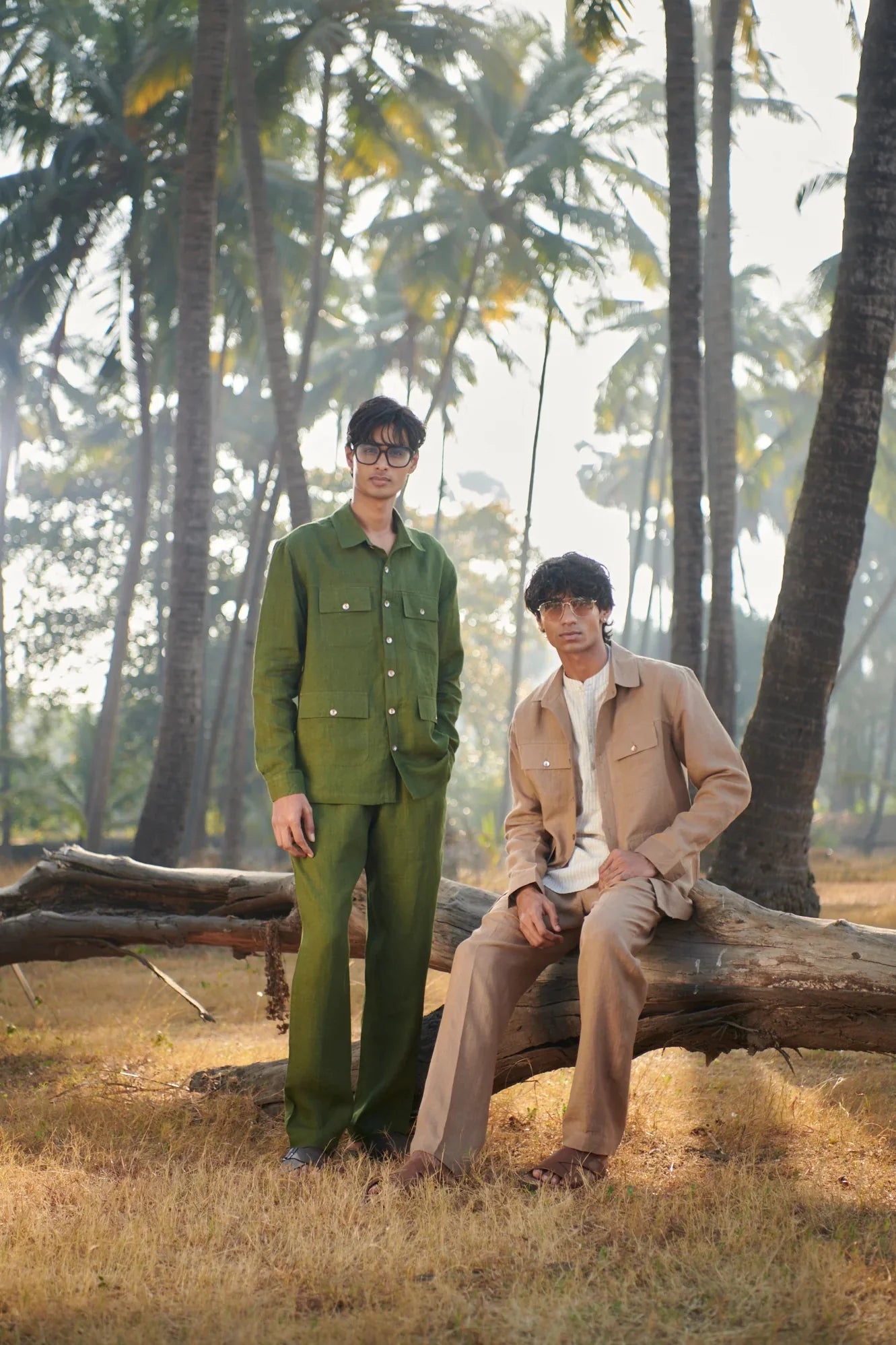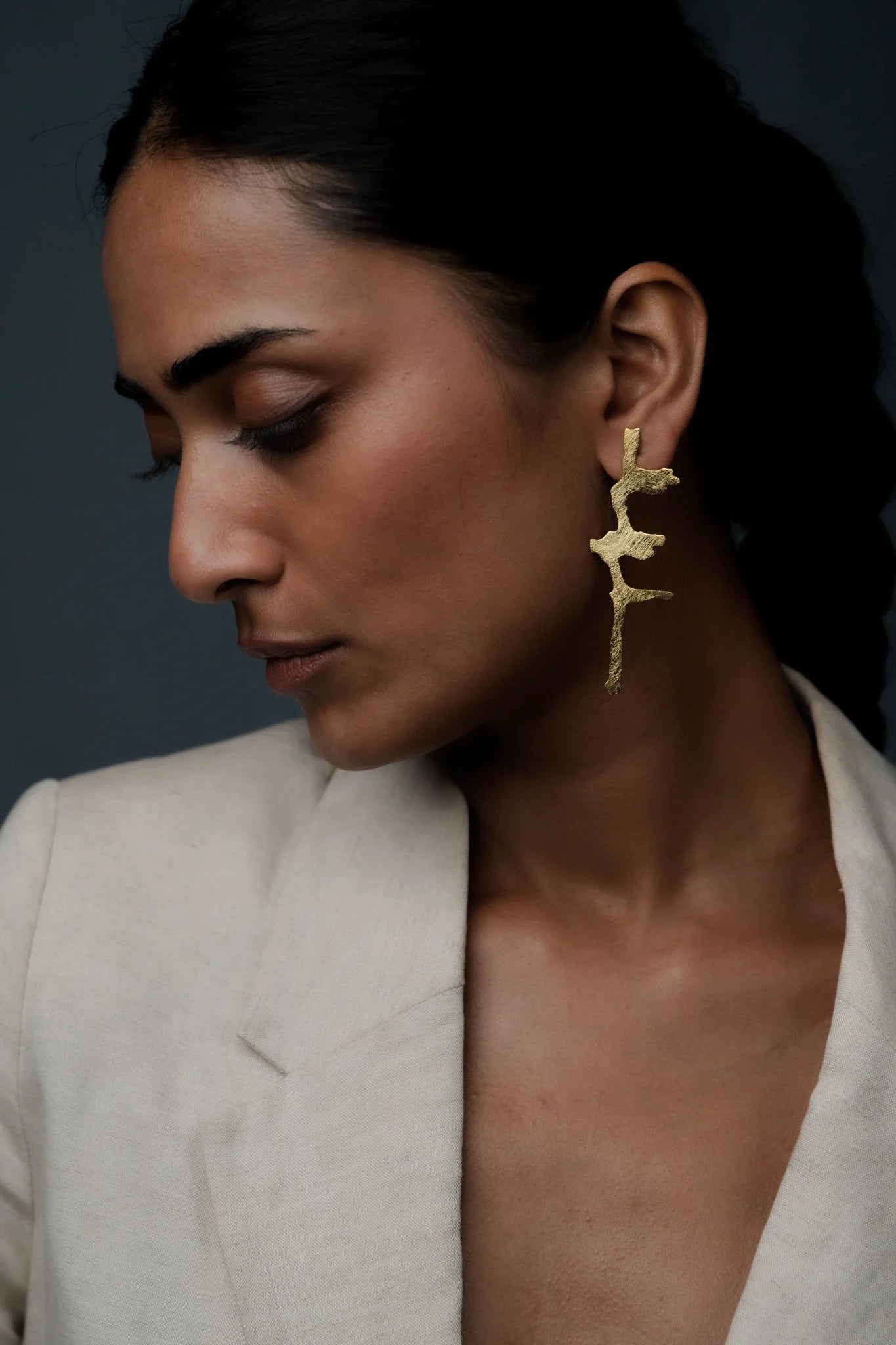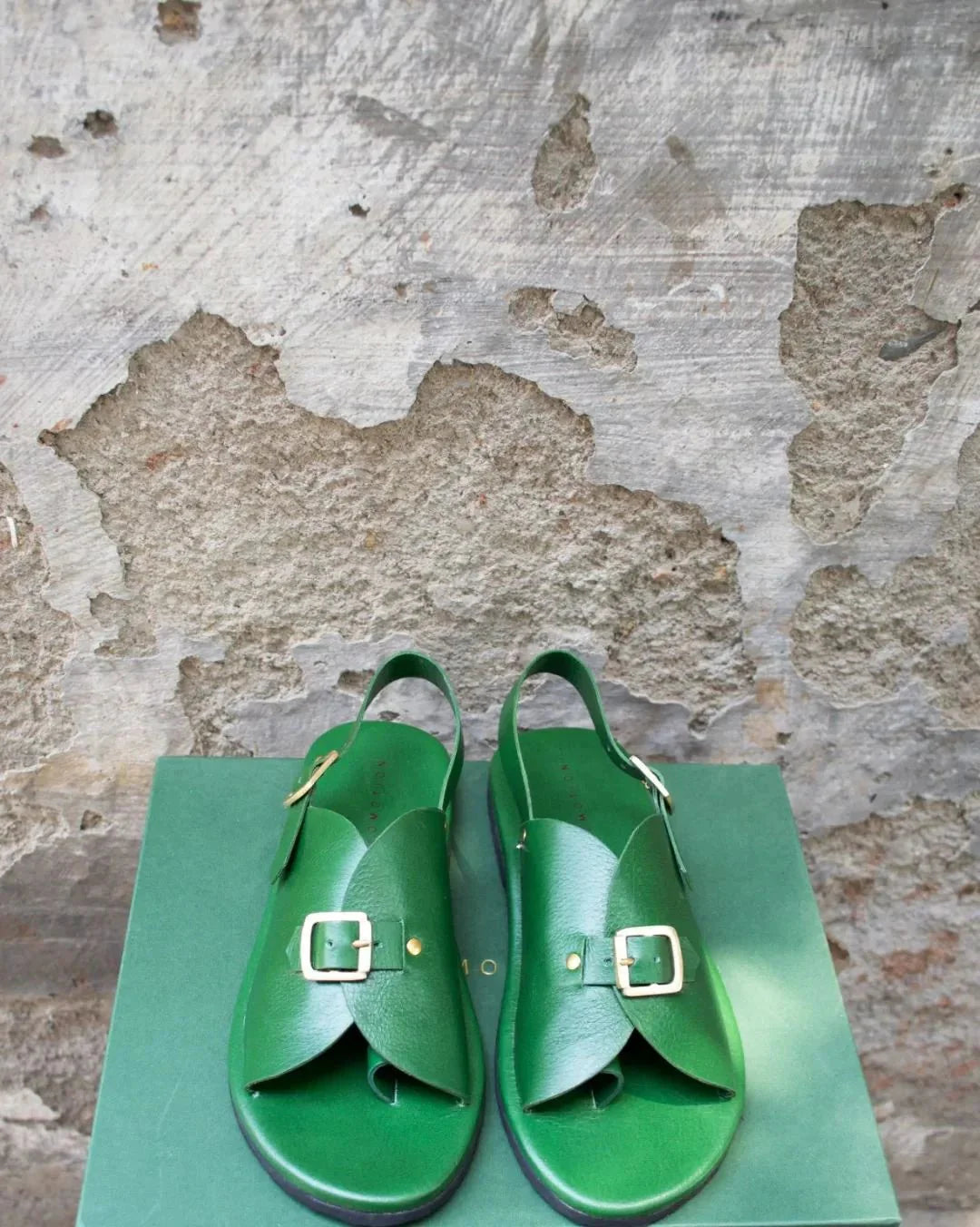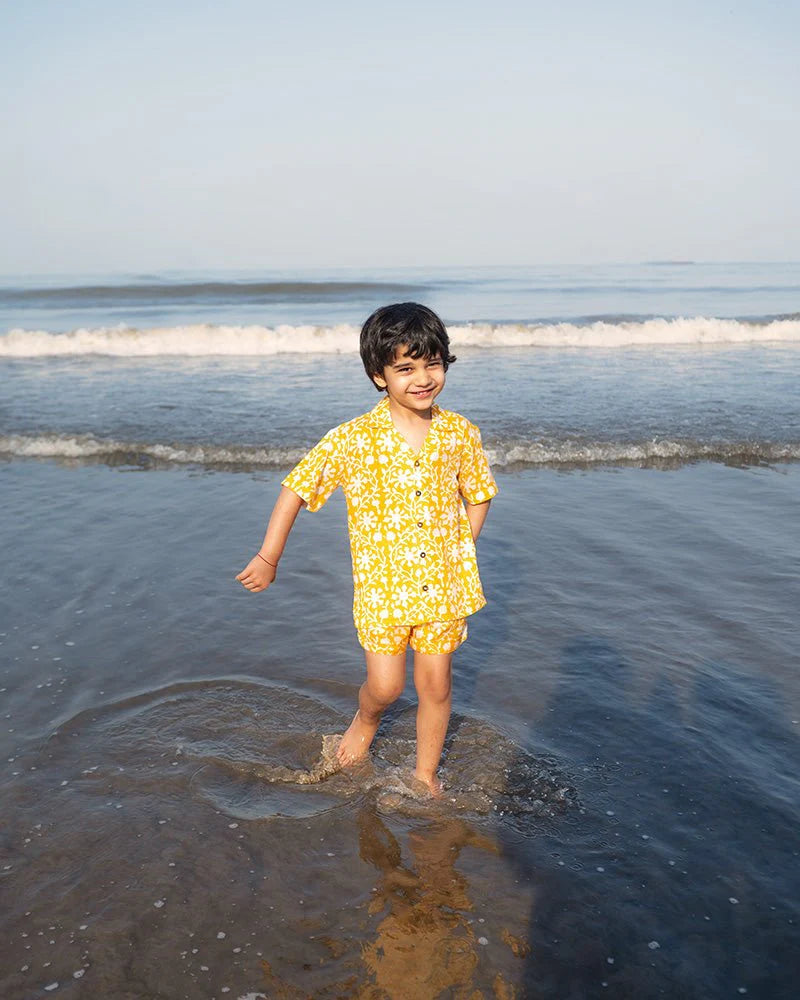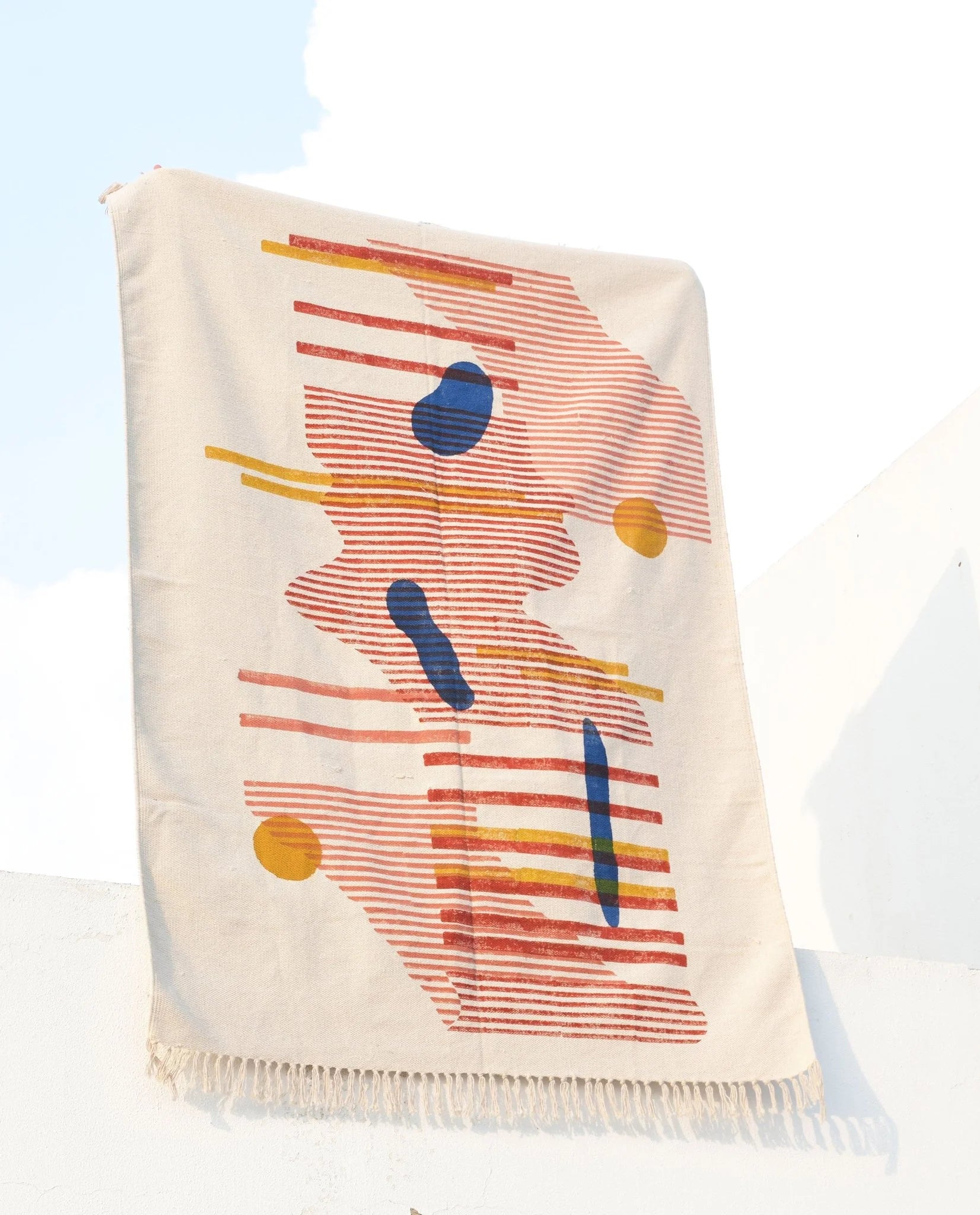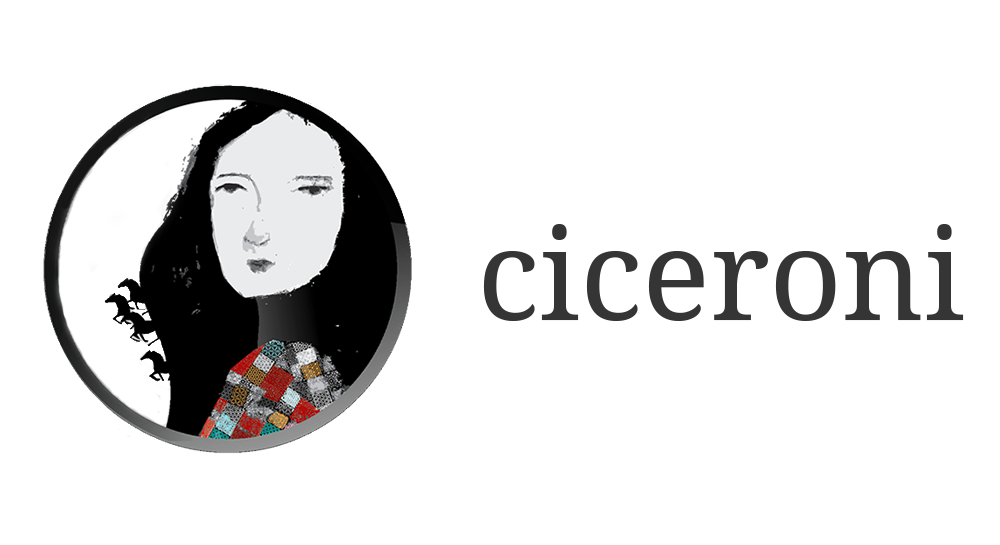The way we see fashion will change completely in these tumultuous times of Corona Virus and quarantine. Globally, fast- fashion retailers and luxury businesses are struggling with their fragile supply-chain ecosystem as the lockdown intensifies across 202 affected territories according to WHO. As the fashion economy comes to a crippling halt, one wonders on the true cost of the businesses, impact on the out-sourced cheap labour from Asia and sustainability from point of environment and people both.
Future of fashion won’t be just about organic tags. It will be about is the brand truly sustainable to environment and people or not.
Amidst this global upheaval, in the small city of Vadodara in Gujarat, Mala and Pradeep Sinha are living and leading sustainable business practice by example through their 37 year old label – BODHI. If small and medium scale fashion and textile businesses are scrambling for ideas to incorporate true sustainability in business, look no further than Bodhi.

STORY OF BODHI
Started in 1983 by Mala Sinha and Pradeep Sinha in Vadodara, Bodhi is a sustainable textile design and textile printing and dyeing unit producing hand-block and hand-screen printed textiles with eco-friendly approach since its inception. The design unit came into being due to lack of job opportunities for designers in India in the early eighties. Back then, design as a career was just being established and the graduates from the first few batches from the National Institute of Design were trying to find their feet in the marketplace, and entrepreneurship was a good alternative.
Fate brought them to Vadodara in the early 80s. It seemed like a small charming city that would embrace two young dreamers with not much in their pockets. Pradeep started with designing and producing India’s first Knock Down Office Furniture system and Mala started printing Table Mats and Napkins.
Thus the whole business began. The challenge was to successfully translate their creative design ideas into marketable products of superb quality. From beginning, both Mala and Pradeep stressed on the need for being sustainable – first due to lack of resources as young designers and then as a way of life as veteran design studio. Be it energy, water or people, Bodhi has led the way for all young entrepreneurs to embrace sustainability from ground zero.

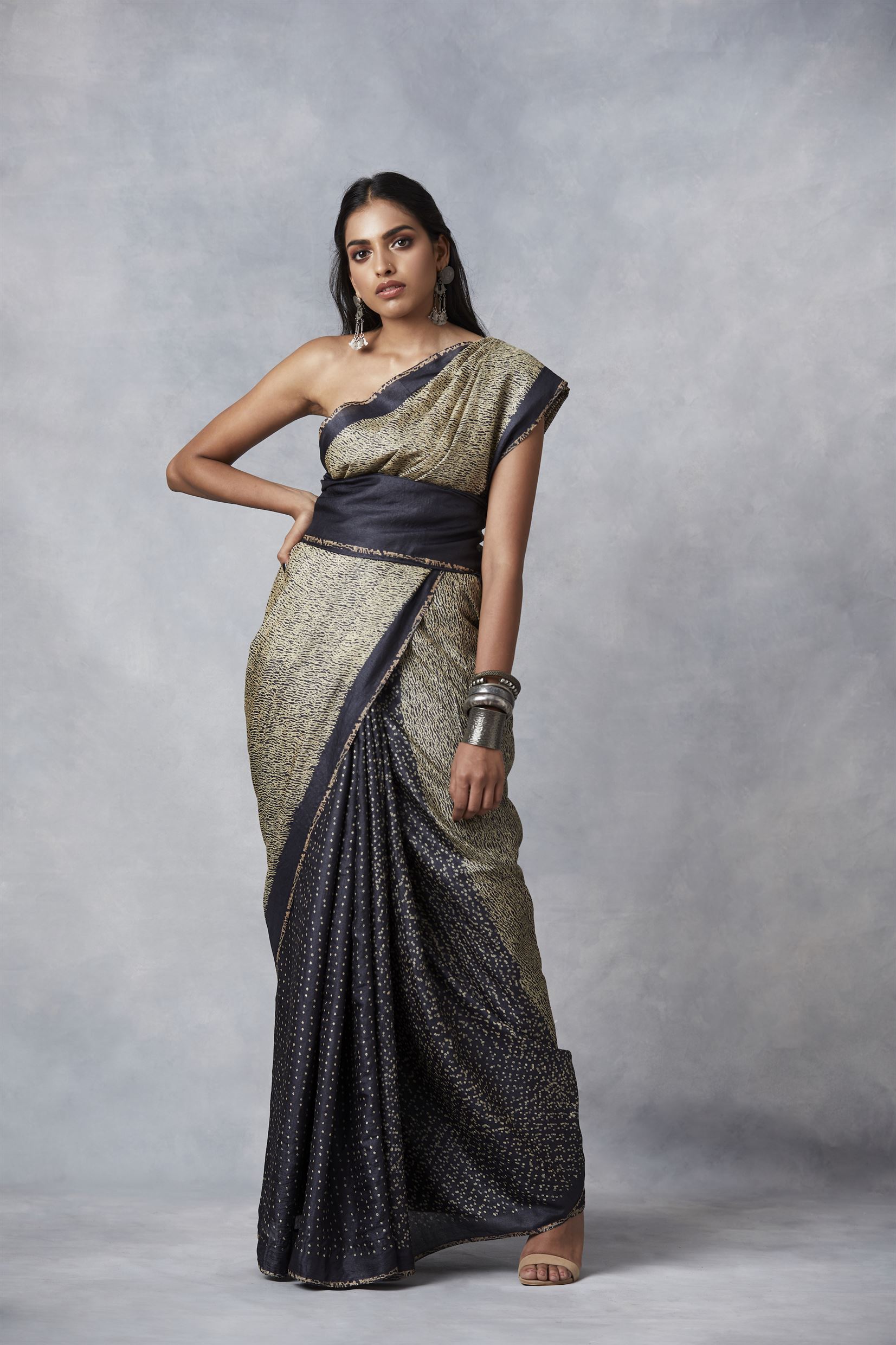

In an exclusive interaction with Ciceroni, Pradeep and Mala share how through small but significant energy-saving innovations, their studio workshop has been able to maintain the quality of its printed textiles while minimizing its carbon and water footprint.
Ciceroni – What steps are being taken at Bodhi to make the brand truly sustainable in terms of resources, environment and people?
Pradeep Sinha – I must admit that there was no grand strategy to start with. It was one small step at a time. We have a frugal approach towards consumption of resources.
- When we were first allotted the C-1 type shed at the Gujarat Industrial Development Corporation’s Makarpura Industrial Estate in Vadodara, it was a small shed built on a patch of barren land. With whatever money we could save, we bought plants like Sacred Barno, Ficus Krishna, Cannonball tree, Rakta Simul, Kadamba, Jamun, Falsa etc to make a garden around the shed. Since the water supply through the municipal lines never actually reached us for various reasons, we dug a bore well wherein we got water at 60 feet depth. After few years realizing that the water table was going down, I decided to try rain water harvesting and made a filtration system using sand and pebble to filter the water before allowing it to enter the bore well.
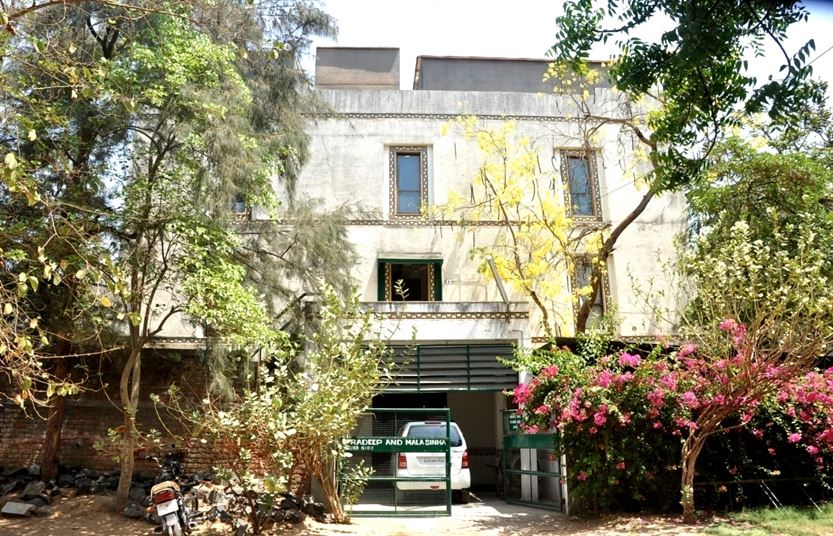
- We needed soft water for making printing paste. One option was to buy demineralized water or maybe set up a RO plant. We bought some HDPE Tanks and filled them with Rain water during the monsoon and monitored for how long would they last. We did not know how much water we would need for a year. So we installed four tanks of 5000 litres each that gets filled with rain water every year. They take care of our soft water needs till date.

- We installed solar hot water systems for hot water requirement to save on energy.
- We made simple solar ovens to bake pigment printed fabrics.
- When we started printing at Bodhi, we had an NOC from the Vadodara Municipal corporation to discharge effluent in the city drains. However, with Gujarat Pollution Control Board (GPCB) norms it became illegal to discharge untreated effluent into the city drains. The initial system that we installed did not work well and so we were desperately on the lookout for an alternative. This is when I came in contact with Dr Sandeep Joshi of Shrishti Eco-Research Institute, Pune. He helped us set up a bio remediation filter to clean and treat waste water. With time, we improved and expanded the treatment system and now we are able to recycle all our effluent and use the treated water for secondary use i.e. for cleaning and washing blocks screen buckets etc. Our consumption of water is almost half of industry standard.
From the environment perspective, our waste water treatment system and recycling of water serve as good examples for sustainability. The frugal approach is a step towards better environment.


Regarding People sustainability, Bodhi believes in long term regular predictable employment. Most of our team is atleast a decade old while some of them have been with us since last three decades. We help our people upgrade their skills and become multitaskers.
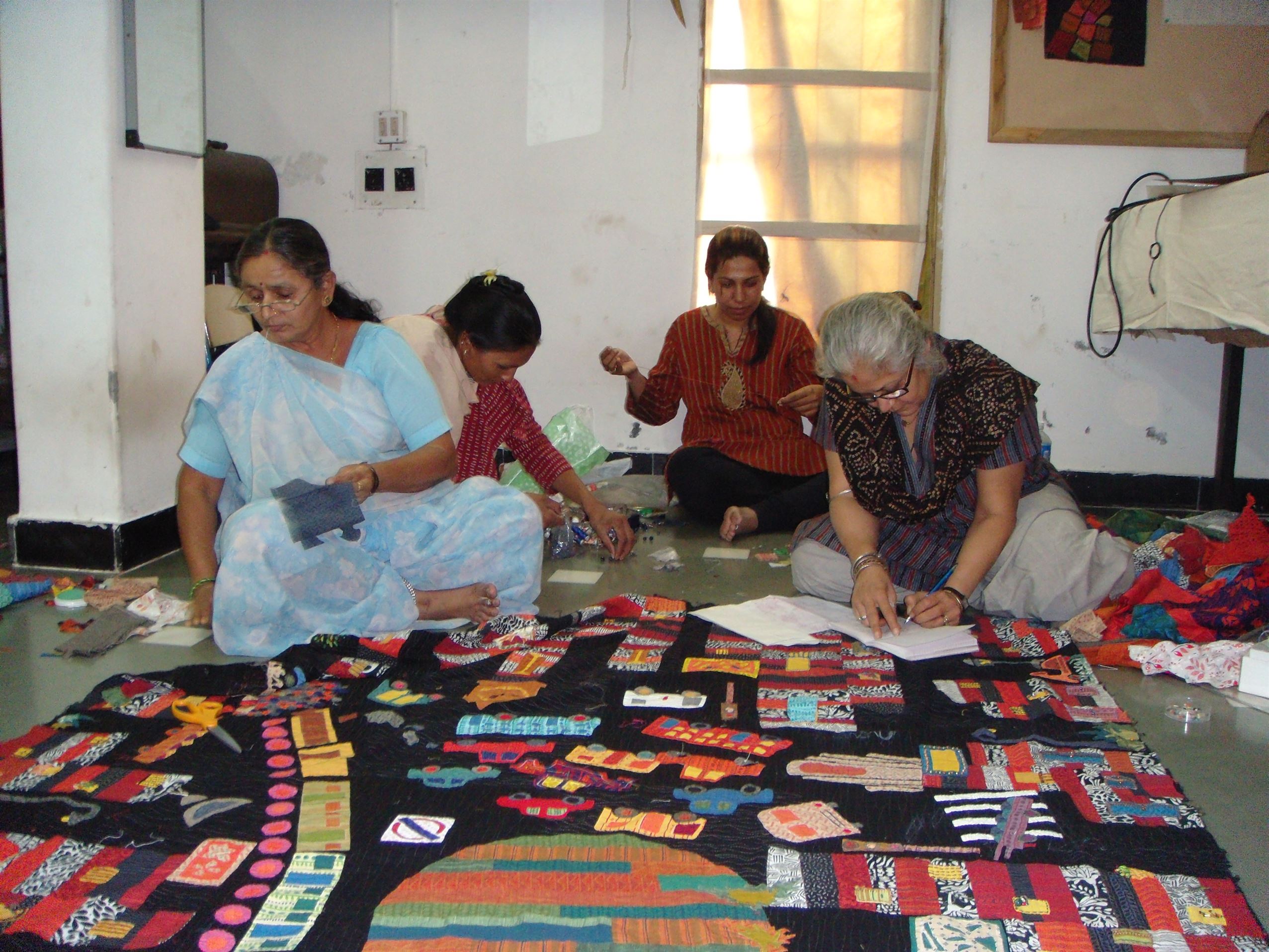

Ciceroni – Can you elaborate on the Canna Bed Filtration idea and challenges that came across while first setting it up ?
Pradeep Sinha – GPCB (Gujarat Pollution Control Board) has very stringent specifications for water that is allowed to be discharged in sewage pipes. We printed with a large variety of dye having different chemical compositions and methods of fixation. Our effluent therefore was not predictable. The cookie-cutter response by consultants was to create separate streams of effluent which wasn’t possible in a small unit like ours.
The options of incinerating and evaporating the water or send our effluent to common effluent treatment plant were not viable; operational and capital issues at hand. We had to find a solution that worked under all situations.
BIG IDEA
The breakthrough came during a visit to Pune. My youngest brother Probir and his friends including Dr Sandeep Joshi, a microbiologist, had taken up the challenge of clearing the Mula Mutha River at the Bund Gardens of water hyacinth and successfully managed to do so. Looking at their success, the officers of College of Military Engineering (CME) approached them to clean a very polluted water stream that passed through the Pimpri Chinchwad industrial area and emptied into the Mula Mutha river through their campus. Sandeep created a system of bunds and ponds that made a significant difference to the quality of water emptying into the river. I requested him to come to Vadodara and access our situation at Bodhi for water filtration and effluents. He asked us to collect samples every day for a week, mix them up and send the mixture to him in Pune where he could conduct his experiments. After a few weeks he called to say that he was hopeful.

The solution was to build some filtration tanks and plant Canna Lilly on the filters in a special growing medium that Sandeep would provide. We took our chance and started the process.
We had to figure out the best way to remove sludge generated after primary treatment i.e. treating the effluent with lime and alum to bring the pH to neutral. If not removed, this sludge would enter the Canna plantation and choke the soil. So, we made additional filter using coconut fibre to remove this residual sludge before it entered the Canna plantation.
We were getting clean water, mildly straw coloured that came up to the specifications required by GPCB.
We then thought of recycling the treated effluent to wash screen and buckets. We sealed the manholes used for discharging the treated water into the drain and when renewal of our GPCB No Objection certification came up we applied for a zero discharge status, which we got. We are officially and truly a Zero Discharge facility.
Ciceroni – How can one maintain canna bed filters for their units?
Pradeep Sinha – All you need is a good gardener to keep an eye on the canna plants and make sure that the sludge is not entering canna bed, soil is turned and remains moist.
We give Canna Bed filtration rest for two days a week and irrigate it with fresh water, typically weekends.
Ciceroni – Are there any organizations that have taken cue from your Canna plantation filtration system ?
Pradeep Sinha – Brigitte Singh of Jaipur has a similar treatment system designed by Dr Sandeep Joshi. She made two independent canna plantations so that she can alternate the use every week.
In 2017, Christine Gent from the Word Fair Trade Organization visited Bodhi and was mighty impressed with our water filtration system. She introduced us to an NGO based in New York who were looking for water treatment systems. They visited our workshop and spent a week understanding our treatment system. We were then invited to New York to share our insights at a conference held at the United Nations. It was a gathering of small craft based entrepreneurs from all over the world and big brands from USA who wished to work with craft clusters who followed sustainable practices.
Unfortunately, interest doesn’t go beyond intrigue in most cases.
Ciceroni – How can other brands learn to recycle water to ensure total sustainability from Bodhi ?
Pradeep Sinha – We have been shouting as loud as we can from the rooftops and are willing to help anyone interested. What took us years to stabilize can now be achieved in months, yet we feel there are no takers.
Mala and Pradeep’s approach towards business since last three decades is the new-age “Slow Fashion” shift that the world is witnessing. The designer duo did work with retail giants of India in the past, but moved away from just large scale production giving more importance to artisanal handcrafted slow fashion back in 2010.




Beyond the realms of Bodhi, Mala and Pradeep are actively pursuing two projects currently for documenting cultural sustainability. The Bombay Block Project is the study of emerging urban aesthetics as seen in wooden hand printing blocks used in Bombay during the late 19th and early 20th centuries. Over 7000 blocks from Bombay have been digitized, numbered and archived for interested researchers. They are also digitizing documents of Master Craftsman Block Maker Maneklal Gajjar of Pethapur and making it available to translators, historians, social scientists and writers who are interested in studying the life and times of a craftsman in India.
Small and Large scale fashion and textile businesses in India will be looking at business with a renewed insight following this massive COVID 19 lockdown. Entrepreneurs, designers and retailers will have to rethink on what is truly sustainable beyond the deluge of short term profits.
A visit to Bodhi will be the right step forward…

